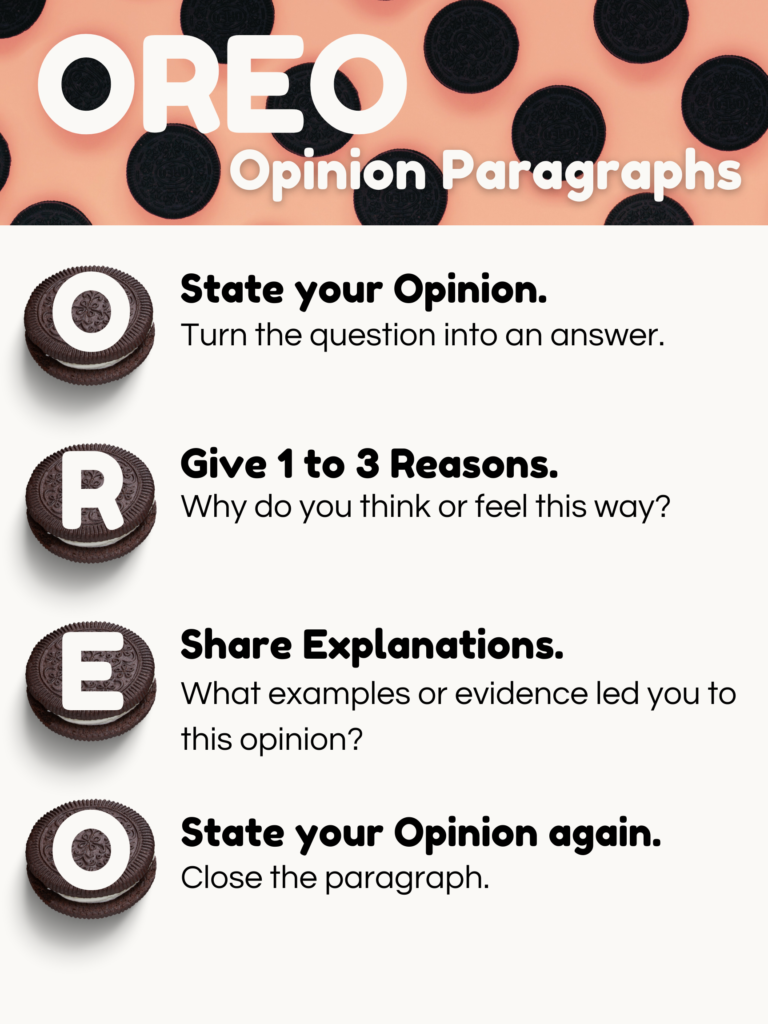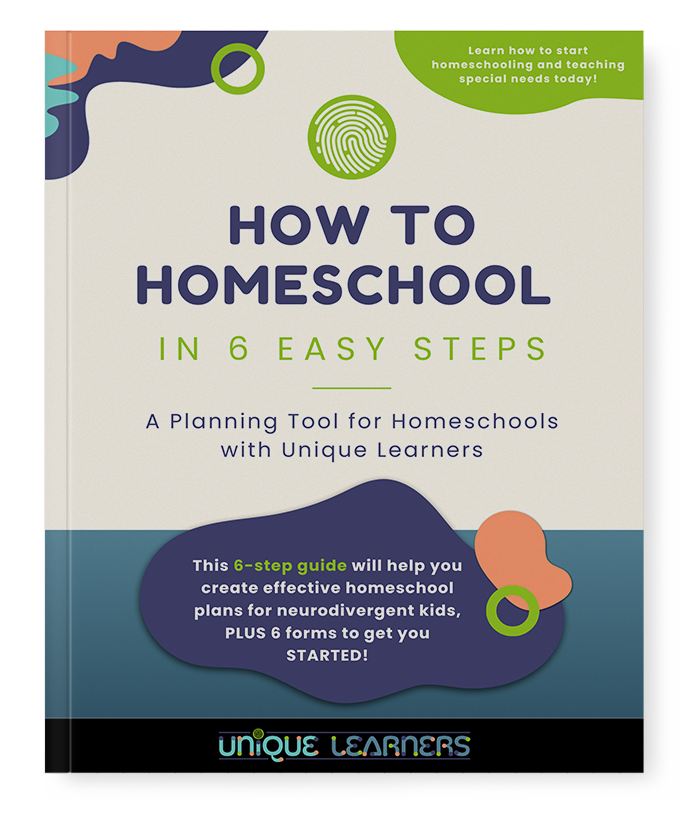If you are a homeschool mom trying to get your older kids with dyslexia or other learning disabilities to write, you may find it’s not as hard as you think. I work with my students to learn to type and use bypass tools in Google Docs, like speech-to-text and text-to-speech.
I also teach a simple proofreading strategy, COPS, and emphasize content over spelling. When we get caught up on correcting spelling in kids’ writing assignments, we diminish the value of their thoughts. Spelling is easily be corrected by an editor, so when we are working on writing paragraphs, spelling is the last thing we fix.E
Emphasize structure over mechanics
Placing the focus of paragraph writing on content can make written expression tolerable for kids with language-based learning difficulties. Many kids with special learning needs have difficulty with organizational skills, especially when using language. So I mostly teach teens how to structure a paragraph and then stretch a paragraph into an essay with 5 paragraphs.
Recently, I have worked with quite a few students who are able to write informative or process paragraphs yet struggle with writing opinion paragraphs. My older high school and college students seem to think that writing a thesis statement is a nearly impossible task and are not sure how to defend their position.
Writing opinions is hard for some teens.

I think the struggle in sharing opinions is partly because when kids are younger, they are encouraged to write stories or informative sentences and paragraphs. I also think that teens tend to be concerned that others will disagree or challenge their opinions. We can help to build confidence in our children by permitting them to have opinions, gently disagree at times with assurance that opinions mean that not everyone will agree because opinions are not facts.
Is it possible to teach homeschooled teens to write higher level papers? My answer is: Absolutely. A curriculum that explains stylistic rules may help students who have a strong grasp of sentence and paragraph writing. However, for kids with special learning needs, the most effective way to develop skill in writing paragraphs and essays is to teach structure and insist on frequent practice.
Opinions can be argued. Facts are always true.
This article will focus on writing opinion paragraphs. Once a student is able to state an opinion and provide reasons and use examples or evidence, the student is then able to structure a well-organized paragraph. When a student is able to easily write opinion paragraphs, the assignment can be stretched into a five paragraph essay with a thesis statement.
Use a graphic organizer to teach paragraph structure and for prewriting planning.
First, teach the structure of a regular paragraph. There are a few memory strategies and graphic organizers paragraph planning, such as the hamburger or mind-mapping. I keep my strategy consistent with T123C because it is simple and rhymes. My students hear it every time we write together or plan a paragraph on my planning forms
The T is for the topic sentence. I teach three types of topic sentences, General, Cluing, and Specific. Eventually, the “specific” type of topic sentence is used to write a thesis statement. In an opinion paragraph, the question prompt is turned into an answer that expresses the student’s preference or position. I encourage my writers never to use the word “because” in a topic sentence so they don’t get backed into a writing corner and have nothing else to write.The OREO structure can help the student remember that the topic sentence requires the opinion to be stated first in an opinion paragraph.

The 123 are the detail sentences. When the three or more details are planned out, I have found students seldom add extraneous information or informal commentary. In an opinion paragraph, we end up with two sections, which are then broken into two or three details.
Using the OREO strategy, O is for Opinion, R is for Reasons, and E is for Explanations, and O is to restate the Opinion.
In the Reasons part of the opinion paragraph, the students should state several reasons why they hold that opinion. These can be personal reasons and the word “because” is allowed to be used in explaining the reasons for holding an opinion. The student should try to write at least two reasons for their opinion.
In the Explanations section, the writer should provide some type of outside logic for how they came to that opinion. The explanations could be examples that were observed or evidence that includes statistics or credible research. The explanations section should avoid further personal reasons because we want the students to learn to move beyond preferences to using logic and evidence that supports their positions.
Finally, an opinion paragraph should close by restating the student’s topic sentence. I try to have students use a transition phrase, such as: “For these reasons…” or “This evidence led me to the conclusion that…” I want my writers to get used to drawing conclusions from well-reasoned logic.

I have my teens write paragraphs frequently and emphasize essay writing once they have a firm grasp of the structure of paragraphs. Then we stretch the exact same outline, making each part of the T123C structure into separate paragraphs, so that each part has its own T123C points. Of course, then we also discuss how to write an introduction that ends with the thesis statement, leading into a logical argument of evidence to support the claim. By the time we reach this stage, we have also covered the basic format of a debate, how to properly persuade when necessary, how to identify fallacies and avoid them in writing an essay.
In my opinion, we ask students to write too early before explicit instruction and consistent practice in the foundational writing process has been required. Keep writing paragraphs using the same organizational expectations.
You can find manywriting resources in my TPT store for various types of paragraphs. Here is the link to the OREO poster.
Here are just a few topics that can get your teen started writing opinion paragraphs:
- Which type of animal makes the best family pet?
- What is your favorite restaurant?
- What is the ideal time to wake up?
- Should teens have a strict bedtime?
- Should the government set screen time restrictions on children and teens?
- Are video games beneficial or harmful?
- Is it better for teens to learn a sport or play an instrument?
- What is the best age for getting a driver’s license?
- What is the best age for being able to vote?
- Is the US Constitution a “living document” or should it be interpreted as the Founding Fathers intended?
- Is having a cell phone a necessity or a luxury for teens?
- Do teens who are homeschooled have better or worse social skills than those who go to public high schools?
- Does technology improve or hinder personal communication?
- Should the government increase efforts to explore other planets for colonization?
- What is the best video game system?
- When should a person start saving money for retirement?
- What should homeschoolers learn in high school?
- What are some “must read” books for teens?
- What is the best style of music for listening?
- Should Christians be actively involved in politics?
- Should Christians share their faith or stay separate from unbelievers?
- Should teens get an allowance or work at a job for their money?
- Which ancient civilization had the most impact on our modern society?
- Should the military draft be reimplemented?
- What sources should be used to generate electricity?
- Were living things created or evolved?
- Is a college education necessary for everyone?
- At what age should teens be allowed to date?
- Should cigarettes or alcohol be outlawed?
- How can we best help homeless people?
- What type of taxes should families have to pay: property, income, sales, or other taxes?
- Should cable television be free?
- Should families have a private plane rather than cars?
- Should the government restrict shows or news from foreign countries?
- Are manners outdated?
- What is your favorite food?
- Which holiday is the most important?
- Are teens able to leave home and live independently?
- What is the most important academic skill: reading, writing, or math?
- Which is more helpful for careers: social studies or science?
- Should all teens be required to do community service during high school?
- Are traditional paper books or ebooks better?
- Should internet be provided free?
- If you could travel anywhere in the world, where would you like to go?
- What helps or hinders studying?
- Where is the best place to live?
- What is your favorite book?
- Should teens be given a car on their 16th birthday?
- Are police or firefighters more helpful?
- Are nurses or store clerks more needed?
